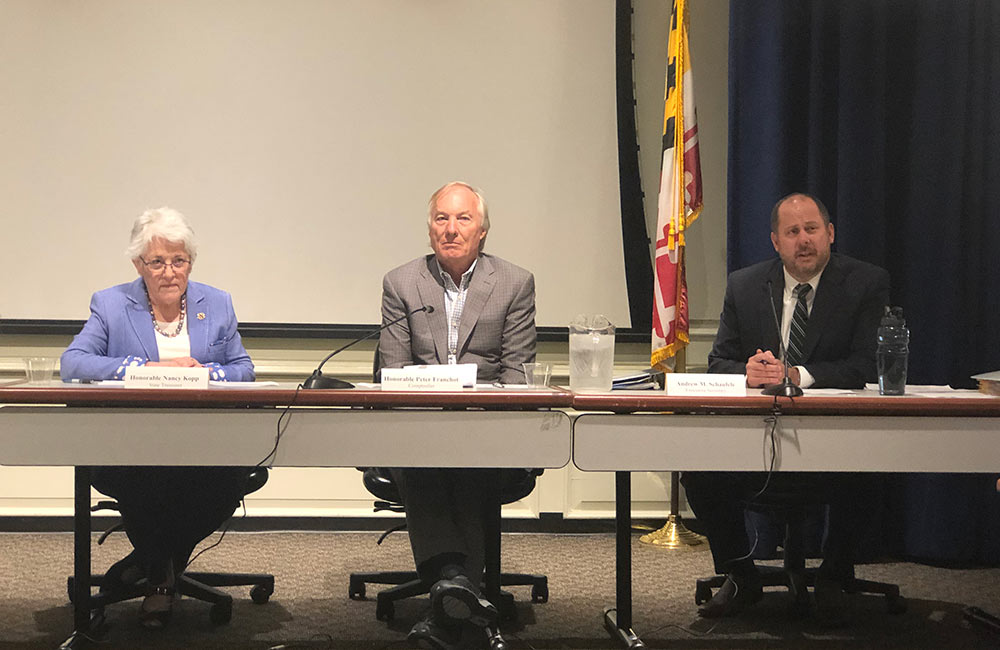Maryland Board of Revenue increases projected revenues
By Elliott Davis
Capital News Service
The Maryland Board of Revenue Estimates voted unanimously Thursday to increase the state’s projected revenues for the current fiscal year by just under $130 million, but cautioned that the uptick “is not indicative of long-term economic growth.”
The new estimate is really a reflection of a strong tax year in 2018, Maryland Comptroller Peter Franchot noted Thursday during the board’s meeting. Franchot, Maryland Treasurer Nancy Kopp and Budget and Management Secretary David Brinkley make up the Board of Revenue Estimates.
The board also set the first official projection for fiscal year 2021 at approximately $19.1 billion, which is a 1.9% increase over prior planning figures, said Bureau of Revenue Estimates Director Andrew Schaufele during the meeting.
Schaufele told Capital News Service after the meeting that the updated projections are a “mix of good and bad.” He pointed to the “writedown in our wage growth outlook” as a point of concern for the future.
Franchot said that three top industries — the federal government, information and financial services — “have contracted while lower-wage industries are growing.”
“While we may be experiencing the longest-recorded period of economic growth at 122 consecutive months,” Franchot added, “the tight labor market is not generating the wage growth that it has in the past.”
Franchot noted “stronger than expected” capital gains reported last month, as well as an uptick in online sales taxes collected after a U.S. Supreme Court ruling allowed it.
Franchot also spoke of other concerns for the future of the economy, including “reckless and erratic trade policy from Washington.”
Brinkley added during the meeting that “revenue growth may not be as rosy in future fiscal years.”
Budget analysts also show that spending is increasing higher than spending due to inflation and mandated spending, creating what’s called a structural deficit.
Schaufele added after Thursday’s meeting, “To some degree, we’re living on borrowed time here.”

MarylandReporter.com is a daily news website produced by journalists committed to making state government as open, transparent, accountable and responsive as possible – in deed, not just in promise. We believe the people who pay for this government are entitled to have their money spent in an efficient and effective way, and that they are entitled to keep as much of their hard-earned dollars as they possibly can.

